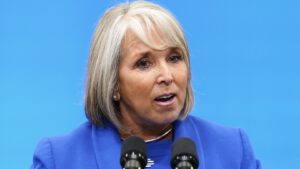Thousands of student-loan borrowers are getting checks in the mail after paying companies accused of scamming them for debt relief services.
The Federal Trade Commission on Wednesday announced it would be sending over $4.1 million in refunds to 27,584 borrowers who gave money to South Dakota corporations Mission Hills Federal and Federal Direct Group.
According to the press release, the FTC said the companies “lured consumers with fake loan forgiveness claims and pocketed their money.” Specifically, in a complaint filed in 2019, the FTC accused the companies of promising to reduce borrowers’ monthly payments, instructing the borrowers to stop paying their federal servicer and make their payments to the companies instead.
However, the FTC said that borrowers rarely saw lower monthly payments, even as the companies were charging “hundreds to thousands of dollars per consumer in illegal advance fees.”
“Moreover, because Defendants have failed to apply most or any of consumers’ payments to their student loans, many consumers have accrued additional capitalized interest on the balance of their loans,” the complaint said. “As a result, many consumers have owed more on the balances of their student loans after signing up with Defendants.”
The US District Court for the Central District of California ruled in favor of the FTC in 2020, prohibiting the companies from telemarketing and providing borrowers debt relief services.
Borrowers impacted by the FTC’s announcement are expected to receive their refunds in the mail and should cash the check within 90 days, the press release said. Those with questions about the payments can contact JND Legal Administration — the company overseeing FTC’s refunds — at 844-566-0108, or seek information through the FTC’s refund information website.
Over the past few years, the FTC and the Consumer Financial Protection Bureau have been cracking down on companies accused of forcing borrowers to pay for debt relief and repayment services the Education Department normally offers for free.
For example, the CFPB announced in February that it would send $10.9 million in refunds to over 8,000 borrowers after accusing a California-based company of charging borrowers “illegal upfront frees” and using misleading tactics to get borrowers to sign up for their services.
After federal student-loan payments resumed in October after an over three-year pause, Biden’s administration warned borrowers to be weary of scammers — particularly given that the Education Department does not charge anything for federal repayment assistance.
Borrowers can also report potential fraudulent behavior by filing a complaint with the CFPB or reporting it to the FTC at reportfraud.ftc.gov.


